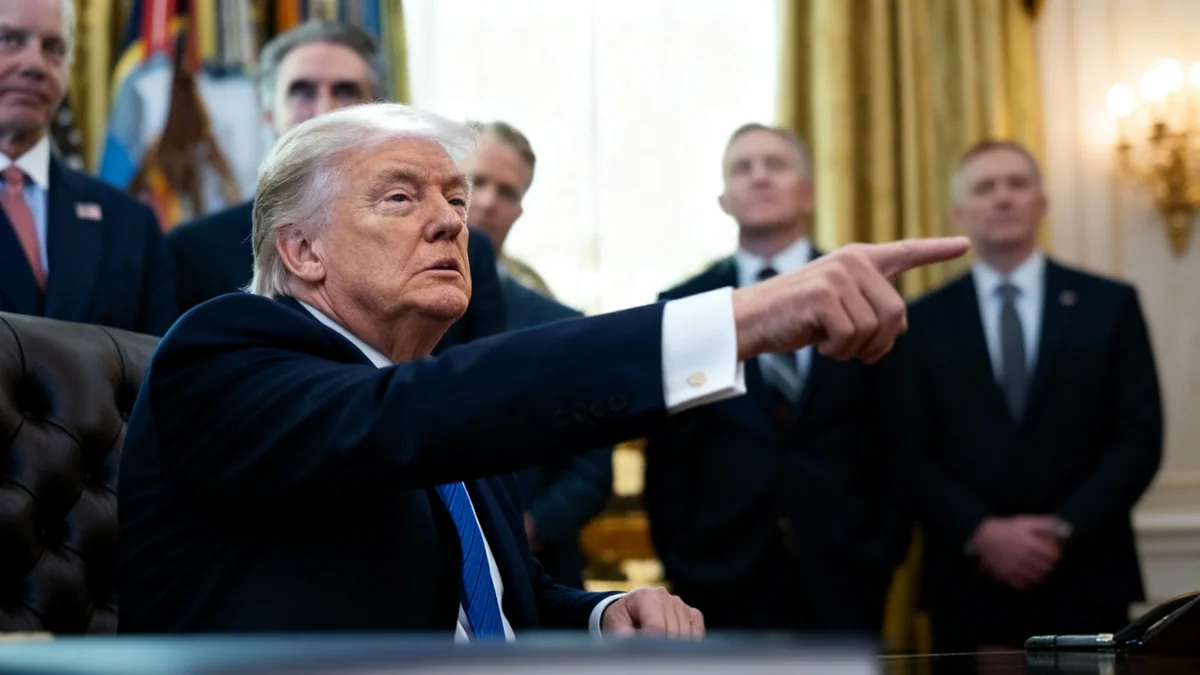Hartsfield-Jackson Atlanta International Airport has forfeited over $37 million in federal grant funding. This decision came after the airport declined to accept new terms related to diversity, equity, and inclusion (DEI) programs. The funds were part of a larger $57 million package from the Federal Aviation Administration (FAA).
These grants were earmarked for several critical airport projects. These included upgrades to restrooms, essential repairs to taxiways, and various sustainability initiatives. The city of Atlanta is now exploring other ways to finance these projects.
Key Takeaways
- Atlanta Airport forfeited more than $37 million in federal grants.
- The funds were tied to new diversity, equity, and inclusion (DEI) requirements.
- Projects affected include restroom upgrades, taxiway repairs, and sustainability efforts.
- The city is seeking alternative funding to avoid service disruptions.
- Future federal funding eligibility for the airport remains uncertain.
Federal Grant Rejection and Its Impact
The forfeiture of funds occurred this summer. The Atlanta Journal-Constitution first reported the details. The total amount of the federal package was $57 million. Of this, over $37 million was lost due to the disagreement over the DEI terms.
Airport officials have stated that the city can pursue other financial avenues. They aim to advance these projects without affecting passengers or service providers. This approach is intended to ensure continued smooth operations at the airport.
Financial Context
- Federal money makes up less than 10% of the airport’s six-year capital improvement budget.
- The total capital improvement budget for Hartsfield-Jackson Atlanta International Airport is $10 billion over six years.
- Approximately $1 billion of this total was expected to come from federal sources.
The Background of the DEI Mandate
The origin of these new grant terms dates back to earlier this year. The Trump administration issued a directive. It required all recipients of U.S. Department of Transportation funds to certify compliance. This certification involved ensuring that their DEI programs did not conflict with federal anti-discrimination laws.
Following this directive, the FAA incorporated this language into its 2025 grant agreements. This new clause became a mandatory component for cities seeking federal airport funding.
National Response to DEI Clauses
Several major cities across the United States have challenged the federal mandate. Cities such as New York, San Francisco, and Boston have filed lawsuits. These legal actions aim to dispute the legality or implementation of the new DEI requirements in federal grant agreements.
Atlanta's Attempt to Modify the Agreement
Atlanta's approach differed from other cities. Instead of filing a lawsuit, the city reportedly tried to modify the grant documents. The goal was to remove the specific DEI clause from its agreement with the FAA.
FAA officials rejected these proposed changes. They set an August 1 deadline for Atlanta to comply with the original terms. The agency made it clear that no alterations to the federal grant language would be accepted.
"The City is currently evaluating all options to ensure alignment with our long-held values, local policy, and federal law and we are confident that the airport will be well positioned to receive federal funds in the future."
Communication with the FAA
On July 29, Ricky Smith, the airport's general manager, informed the FAA of Atlanta's decision. He stated that the city could not sign the agreement with the new provisions. This communication occurred just days before the August 1 deadline.
Soon after, the FAA confirmed that the funding would not be released to Hartsfield-Jackson Atlanta International Airport. This solidified the forfeiture of the more than $37 million in grants.
City of Atlanta's Official Statement
The City of Atlanta released an official statement regarding the situation. The statement highlighted the airport's significance and its financial strength.
"The City of Atlanta’s airport is the busiest and most efficient on the planet, with large and complex staffing, operations and capital improvements, supported by an annual capital and operating budget of over $2 billion," the statement read. "We are confident that the airport will be able to pursue alternative funding to advance these projects without impacting customers or airport service providers."
The city also reiterated the relatively small proportion of federal funding in its overall capital plan. "Federal funding for the airport, while important, represents less than 10%, approximately $1 billion over the next 6 years of the airport's total capital program over the same period."
Uncertainties and Future Outlook
Several questions remain unanswered following Atlanta's decision. Federal officials have not disclosed if other airports have also lost funding due to similar reasons. This makes it difficult to assess the broader impact of the FAA's new DEI terms across the country.
It is also unclear whether the City of Atlanta plans to pursue legal action against the FAA. Such litigation could challenge the federal mandate, similar to actions taken by other major cities.
Key Stakeholder Silence
Delta Air Lines, a major tenant and financial supporter of airport expansion projects, has declined to comment on the matter. Delta has previously affirmed its commitment to DEI initiatives, even as some federal and corporate policies have shifted.
Previous Funding and Future Eligibility
- The airport already received a $10.6 million grant for airfield work earlier this year.
- Atlanta may be eligible for more than $19 million in fiscal year 2026.
- Eligibility for future funds depends on the airport agreeing to the federal terms.
Balancing Local Values and Federal Requirements
City leaders are currently evaluating their policy options. They aim to balance Atlanta’s long-standing minority contracting initiatives with the need to access federal funding. This balance is crucial for the airport's future development.
The outcome of these deliberations could significantly influence how the airport finances major projects. These projects include concourse expansions and other critical infrastructure upgrades in the coming years. The decision will set a precedent for how Atlanta navigates federal funding requirements moving forward.
Broader DEI Discussions
The situation at Hartsfield-Jackson Atlanta International Airport is part of a larger national conversation about DEI policies. Various institutions and companies are facing scrutiny or making changes to their DEI programs. This includes universities, school districts, and major corporations.
- Emory University is reportedly closing DEI offices and stopping related programs.
- Decatur school officials have voted to reinstate DEI policies.
- Home Depot is facing calls for a boycott over its DEI stance.
- A petition to boycott Target over DEI rollbacks has gained traction.
- Coca-Cola maintains its DEI goals, while PepsiCo has scaled back initiatives.
- Georgia Tech faces backlash over a policy banning DEI programs.
These examples illustrate the wide range of responses and challenges related to DEI initiatives across different sectors.





